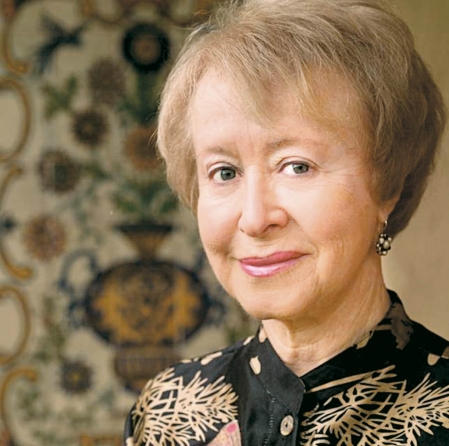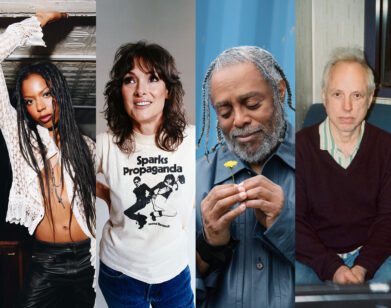Marilyn Yalom and the Language of Love

Marilyn Yalom’s How The French Invented Love (Harper Perennial) is a rich, ribald and immaculately researched account of how the French became the world’s most romantic race. From the star-crossed affairs of distant historical figures and the exciting sex lives of the existentialists to how France has influenced our modern language of love, Yalom writes with intelligence and first hand knowledge. Cinema, art, French kissing, ménage a trois, and rendezvous, France has led the way in romance for centuries. Yet, how and why is this the case? Coming from a conservative 1950s America, Yalom as a young woman explored the country that so seduced her senses, both scholarly and otherwise. Now, she traces the history of France’s most famous lovers, bringing to light how their passions shaped how the world perceived amour. We spoke with Yalom about her virginal first trip to Paris, Simone de Beauvoir and Sartre, freedom, the decline of marriage, and the fight for romance.
ROYAL YOUNG: I want to talk about your life in America in the 1950s and what a colorful, alluring contrast French culture must have been.
MARILYN YALOM: Yes, indeed. I was at Wellesley College when I first went to France in 1952 or ’53. That was a change from Wellesley, where we still had limited dating, had to be in by midnight in a very much retain-your-virginity community. Then off I went to Paris, where there was a latent sensuality, people embracing in gardens and sitting on the side of the Seine. And of course, the very shocking ideas of Simone de Beauvoir and Sartre advocating what they called a primary relationship outside of marriage while having contingent relations. That is, you were free in your love and sexual relationships. Freedom was the password. [laughs]
YOUNG: [laughs] The French do love their freedom.
YALOM: They do. Liberté, egalité, fraternité!
YOUNG: There’s a lot of hope in love.
YALOM: There is, and you also see the intensity of love in the French experience. More than anything, there is a belief that love has its own justification, that it should be experienced as passionately as possible. The French have a wonderful expression, amour passion, which is the ultimate. If you’ve lived in France long enough, one day someone will tell you about their amour passion, the passionate love of their live, or they will ask you if you’ve ever had an amour passion.
YOUNG: What happens if you say you haven’t?
YALOM: Well, then they look at you rather sadly. For a French person, lack of desire in someone is really seen as a defect.
YOUNG: Do you think that’s true? Do you think someone who goes through life closing themselves off to affection is defective?
YALOM: I think you’ve missed something. But I would say more than that, we crave connection, with other people, with a partner if we can have such a partner, a long-lived partner, which is becoming more and more difficult. So I won’t even say lifelong partner, but an enduring relationship with another person.
YOUNG: Why do you say it’s becoming more difficult?
YALOM: Well, in France and in the United States, divorces are becoming more frequent. We live in a society where we don’t want to commit to another person for life. We do at the moment that we marry, but less and less people marry. We marry later, we marry less. On some level of the unconscious, we know there is less of a chance that a marriage will be life-long.
YOUNG: That’s sad.
YALOM: It is. I think people are more likely now to think it’s better to find something new. That mentality has affected all of our thinking. Another issue is that we live longer, and the person for whom we had a great deal of amour passion when we were in our 20s may not be the person we want to spend the second half of our lives with. We no longer believe we have to weather it for yourself, for your sacrament, for your children.
YOUNG: It’s so interesting that you say there’s nothing that says you have to weather it for yourself, because to me, that’s one of the best reasons to weather it.
YALOM: Yes, it is. Having been married for 57 years to the same person, not without enormous strains and difficulties at times, I have to say I appreciate the longevity of our marriage and the fact that we have a shared history and still want the best for each other. This is very precious.
YOUNG: I agree with you completely. But that can be daunting. I’m 27, and my parents have a very strong marriage, and same with my grandparents. Though I want to live up to that level and see how much it’s brought them, it’s hard to imagine that being attainable.
YALOM: I can understand that. It’s definitely less easily attainable than it has been in the past. For someone who’s 27, it may still be an ideal. But who doesn’t want to have a soulmate?
YOUNG: I refuse to give up the fight!
YALOM: Good for you!
YOUNG: Thank you. I got the sense, reading your book, that love for the French is elevated almost to a destiny or fate.
YALOM: That certainly has been true through most of French history. How many times have I heard in France of women who have been married for many years and the husband has had mistresses and you ask, “Why does she put up with it?” Because she loves him! Love is justification for so many things Americans would never put up with.
YOUNG: Right, we would say, I love them, but I’ve been in therapy and they’re not emotionally healthy for me and I’m getting out of this. They’re replaceable.
YALOM: You don’t fight for it.
YOUNG: The French seem to really fight for it.
YALOM: They do as long as they can.
YOUNG: [laughs] Besides culturally and this vast romantic history, is there just something in the French water?
YALOM: [laughs] That encourages love?
YOUNG: Yes.
YALOM: Culture is very, very strong. In France, you have 900 years of romantic love going back to the troubadours and minstrels that wrote stories of Lancelot and Guinevere. You have gallantry at the highest level. In Madame Bovary, when she’s at the nun’s school, what’s hanging on the wall? A picture of the mistress of the king of France. [laughs] So it’s in their unconscious that love counts, that sex counts, that love is embedded in the flesh.
HOW THE FRENCH INVENTED LOVE IS OUT TODAY.






